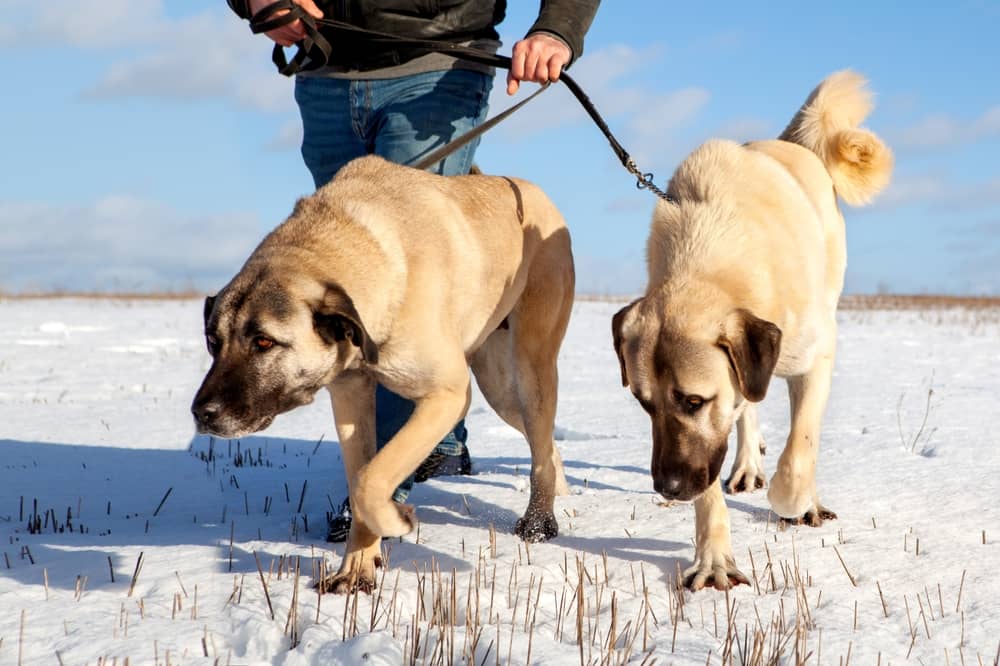
Dog Bite Laws provide comprehensive information regarding dog bite laws, legal advice, and resources for dog owners and victims of dog attacks. Our services include understanding dog bite laws by state, legal resources for dog bite victims, guidelines for responsible dog ownership, and information on specific dog breeds and their behavior. In this blog post, we explore whether Kangal dogs are dangerous by examining their characteristics, behavior, and legal considerations.

Introduction to the Kangal Dog Breed
Kangal dogs, also known as Kangal Shepherd Dogs, are a large and powerful breed originating from Turkey. This livestock guardian dog is known for its impressive guarding abilities and has been used for centuries to protect livestock from predators such as wolves and bears. Due to their size, strength, and protective nature, these guard dogs often raise questions about their potential for aggression and danger.
Physical Characteristics of Kangal Dogs
Kangal dogs are one of the largest dog breeds, with males typically standing between 30 to 32 inches at the shoulder and females slightly shorter at 28 to 30 inches. They can weigh anywhere from 90 to 145 pounds. Their coat is short and dense, usually in shades of fawn with a black mask. Kangal dogs have a muscular build, a broad head, and strong jaws, which contribute to their formidable appearance.
Historical Background and Origin of the Kangal Dog
The Kangal dog breed has a rich history dating back to ancient times in the Sivas region of Turkey. They were primarily bred by Turkish shepherds to protect their flocks from predators. The breed’s name comes from the town of Kangal in the Sivas province. Kangal dogs have been highly valued for their loyalty, courage, and ability to work independently in harsh conditions.
Health and Lifespan of the Kangal Dog
Kangal Dogs are generally healthy and robust, but like all breeds, they are prone to certain health issues. Common health problems in Kangal Dogs include hip dysplasia, elbow dysplasia, and entropion (a condition where the eyelid rolls inward). Regular veterinary check-ups are essential to catch and manage these conditions early. The average lifespan of a Kangal Dog is around 12 to 15 years, which is relatively long for a large breed. To maintain their health, it is crucial to provide a balanced diet, regular exercise, and preventive healthcare measures such as vaccinations and parasite control.
Tips for Maintaining the Health of Your Kangal Dog:
- Regular Vet Visits: Schedule annual or bi-annual check-ups to monitor your dog’s health and catch any issues early.
- Balanced Diet: Provide a diet rich in essential nutrients to support overall health and well-being.
- Exercise: Ensure your Kangal Dog gets plenty of physical activity to maintain a healthy weight and muscle tone.
- Preventive Care: Keep up with vaccinations, flea and tick prevention, and regular deworming.
- Monitor for Symptoms: Be vigilant for signs of common health issues, such as limping, eye irritation, or changes in behavior.
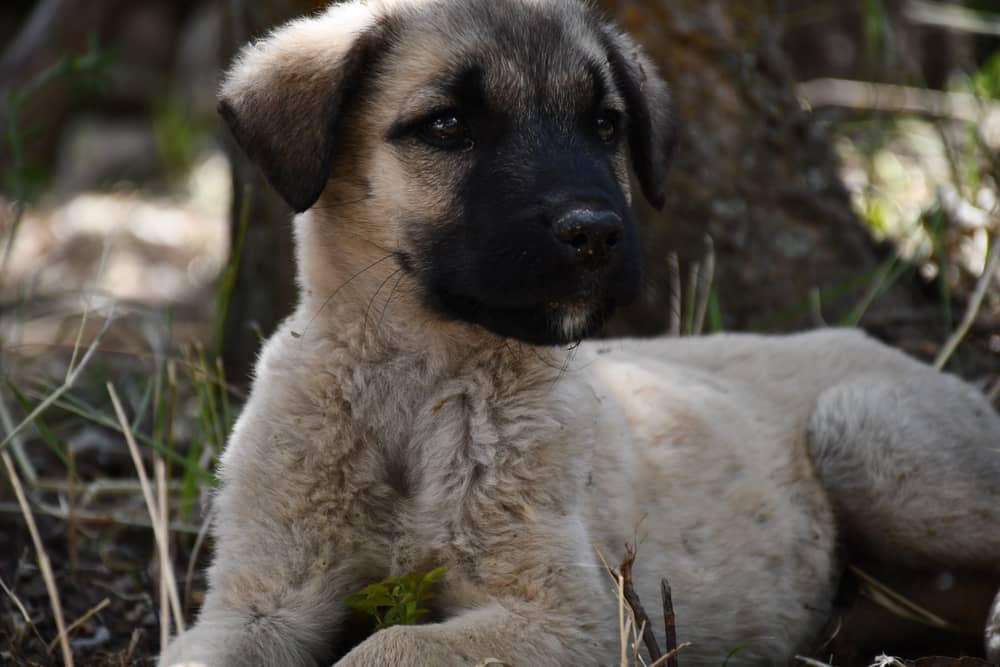
Ensure Your Kangal Dog Has a Proper Diet and Nutrition
A balanced diet is crucial for the health and well-being of Kangal Dogs. They require high-quality dog food that meets their nutritional needs. Look for foods that list meat as the first ingredient and avoid those with fillers like corn and soy. Kangal Dogs benefit from a diet rich in protein, healthy fats, and essential vitamins and minerals.
Recommended Foods for a Kangal Shepherd Dog
- High-Quality Kibble: Choose a premium brand that uses natural ingredients and provides a balanced nutritional profile.
- Raw Diet: Some owners opt for a raw diet, which can include raw meat, bones, and vegetables. Consult with a vet before starting this diet.
- Supplements: Consider adding supplements like fish oil for a healthy coat and joint support.
Feeding Schedule for a Kangal Shepherd Dog
- Puppies: Feed 3-4 small meals a day to support growth and development.
- Adults: Feed 2 meals a day to maintain energy levels and overall health.
- Seniors: Adjust the diet to lower calorie intake if the dog becomes less active.
Exercise Needs of a Kangal Shepherd Dog
Kangals are energetic, active dogs that require regular exercise to stay healthy and happy. They enjoy a variety of activities, including walking, running, and playing. Due to their guarding instincts, they also benefit from mental stimulation and tasks that engage their natural abilities.
Types of Activities
- Daily Walks: Aim for at least 60 minutes of walking each day.
- Playtime: Engage in interactive play, such as fetch or tug-of-war.
- Training Sessions: Incorporate obedience training and agility exercises.
- Guarding Tasks: Provide opportunities for them to use their guarding instincts in a controlled environment.
Exercise Tips
- Consistency: Maintain a regular exercise routine to keep your dog fit and mentally stimulated.
- Variety: Mix up activities to prevent boredom and keep your dog engaged.
- Safety: Ensure exercise areas are secure and free from hazards.
Ideal Living Conditions for Large Dogs
Livestock guardian breeds are best suited for homes with ample space, such as a house with a large yard. They are not ideal for apartment living due to their size and exercise needs. A secure, fenced yard is essential to provide them with a safe area to roam and play.
Space Requirements
- Large Yard: A spacious yard allows for adequate exercise and exploration.
- Secure Fencing: Ensure the yard is securely fenced to prevent escapes.
- Shelter: Provide a comfortable shelter or dog house for outdoor time.
Indoor Living
- Space: Ensure there is enough indoor space for the dog to move comfortably.
- Quiet Area: Create a quiet, designated area for the dog to rest and relax.
- Supervision: Supervise interactions with children and other pets to ensure safety.
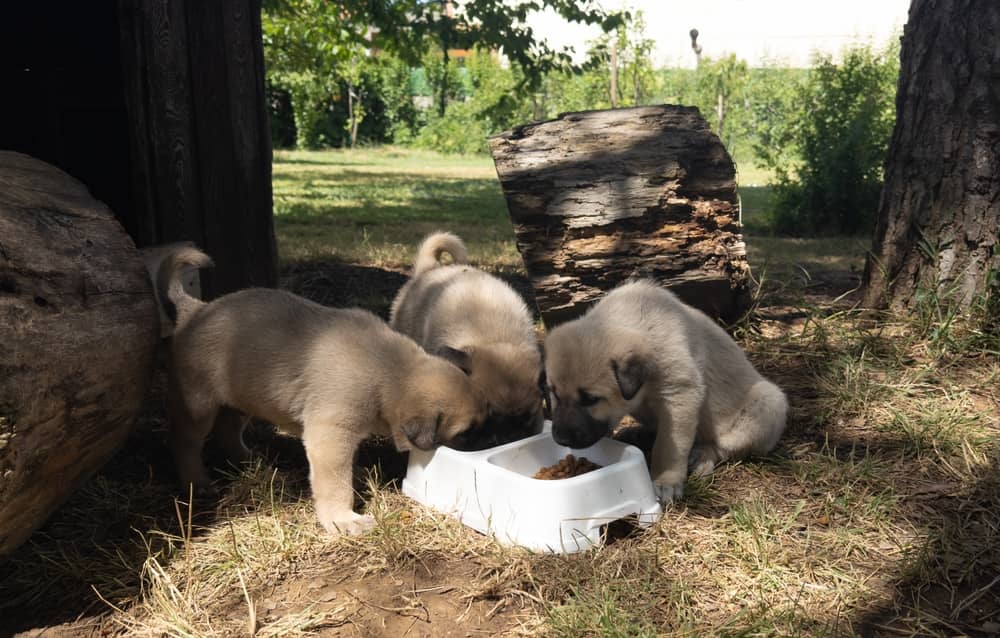
Grooming and Maintenance
Kangal Dogs have a short, dense coat that requires regular grooming to keep it in good condition. They are moderate shedders, and regular brushing helps manage shedding and keeps the coat healthy.
Grooming Tips
- Brushing: Brush the coat at least once a week to remove loose hair and dirt.
- Bathing: Bathe the dog as needed, typically every few months, using a gentle dog shampoo.
- Nail Trimming: Trim the nails regularly to prevent overgrowth and discomfort.
- Dental Care: Brush the dog’s teeth several times a week to maintain oral health.
- Ear Cleaning: Check and clean the ears regularly to prevent infections.
Compatibility with Families and Other Pets
Kangal Dogs can be excellent family pets when properly trained and socialized. They are known for their loyalty and protective nature, making them good guardians for families. However, their size and strength require careful management, especially around small children and other pets.
Interaction with Children
Here are some tips for ensuring safe and positive interactions between Kangal Dogs and children:
- Supervision: Always supervise interactions between the dog and young children. Never leave a child alone with a Kangal Dog, as even the gentlest dog can accidentally cause harm due to its size and strength.
- Training: Teach children how to interact with the dog respectfully and safely. This includes not pulling on the dog’s ears or tail, not disturbing the dog while it is eating or sleeping, and understanding the dog’s body language.
- Boundaries: Establish clear boundaries to prevent rough play and accidental injuries. Make sure children know not to climb on the dog or play too roughly, as this can lead to unintentional aggression or injury.
Interaction with Other Pets
Kangal Dogs can coexist peacefully with other pets, but proper socialization and management are key. Here are some tips for ensuring harmonious interactions between Kangal Dogs and other pets:
- Socialization: Introduce the dog to other pets gradually and under controlled conditions. Start with short, supervised meetings and gradually increase the duration as the animals become more comfortable with each other.
- Compatibility: Monitor interactions to ensure compatibility and prevent conflicts. Pay attention to the body language of both the Kangal Dog and the other pets to identify any signs of tension or aggression.
- Separate Spaces: Provide separate spaces for the dog and other pets if needed. This can help prevent territorial disputes and give each animal a safe space to retreat to if they feel overwhelmed.
Interaction with Strangers
Kangal Dogs are naturally protective and can be wary of strangers. Proper training and socialization are essential to ensure they remain calm and controlled around new people. Here are some tips for managing interactions with strangers:
- Training: Train the dog to remain calm and controlled around strangers. Use positive reinforcement techniques to reward calm behavior and discourage aggression or fear.
- Socialization: Expose the dog to different people and environments to reduce fear and aggression. Take your Kangal Dog to various places and introduce them to a variety of people to help them become more comfortable in different situations.
- Boundaries: Set boundaries for interactions with strangers to ensure safety. Make sure the dog understands that it is not allowed to approach strangers without permission and that it must remain calm and controlled in public settings.
By understanding and addressing the unique needs of Kangal Dogs, owners can ensure a safe, healthy, and harmonious relationship with their pets.
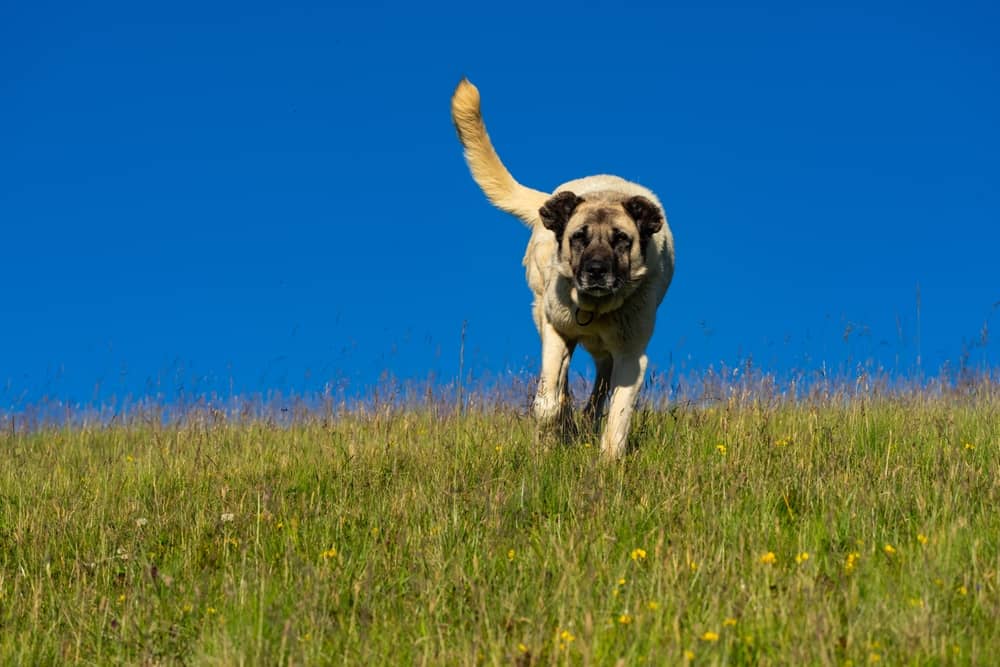
What to Do If Your Kangal Bites Someone
If your Kangal guard dog bites someone, it’s crucial to take immediate and appropriate action to address the situation responsibly. Here are the steps you should follow:
- Ensure Safety: First, ensure the safety of the victim and others. Secure your dog to prevent further incidents.
- Provide Medical Attention: Offer first aid to the victim and seek professional medical help if necessary. Even minor bites can lead to infections and should be treated by a healthcare professional.
- Exchange Information: Exchange contact information with the victim. Provide your contact details and any relevant information about your dog, including vaccination records.
- Report the Incident: Depending on local laws, you may need to report the bite to animal control or local authorities. They will provide guidance on the next steps and any legal requirements.
- Consult a Veterinarian: Have your dog examined by a veterinarian to rule out any medical issues that might have contributed to the aggressive behavior.
- Seek Professional Help: Consult a professional dog trainer or behaviorist to address the underlying causes of the aggression and prevent future incidents.
- Review Legal Obligations: Familiarize yourself with local dog bite laws and regulations to ensure compliance and avoid legal issues.
Taking these steps can help manage the situation responsibly and prevent future incidents.
Kangal Dog Temperament and Behavior Traits
Kangal dogs are known for their calm and steady temperament. They are highly intelligent, loyal, and protective of their family and territory. While they are generally gentle and affectionate with their owners, they can be wary of strangers and may exhibit protective behaviors if they perceive a threat. It is important to note that Kangal dogs are not inherently aggressive, but their strong guarding instincts can lead to defensive actions if not properly managed.
Kangal Dog Training and Socialization Needs
Proper training and socialization are crucial for Kangal dogs to ensure they develop into well-behaved and balanced adults. Early socialization should include exposure to various people, animals, and environments to help them become more adaptable and less suspicious of unfamiliar situations. Training should focus on obedience and reinforcing positive behaviors. Due to their intelligence and independent nature, Kangal dogs respond well to consistent, firm, and positive reinforcement training methods.
Common Misconceptions about Kangal Dogs
There are several misconceptions about Kangal dogs that contribute to their reputation as dangerous animals. One common misconception is that their size and strength make them inherently aggressive. In reality, Kangal dogs are typically calm and controlled, using their size and strength primarily for protection rather than aggression. Another misconception is that they are not suitable as family pets. While they require experienced handling and training, Kangal dogs can be loving and loyal companions in the right environment.
Legal Regulations and Restrictions Related to Kangal Dogs
Due to their protective nature and potential for aggression if not properly managed, some jurisdictions have specific regulations and restrictions related to Kangal dogs. These may include mandatory liability insurance, special licensing, and restrictions on where the dog can be taken. It is important for potential Kangal dog owners to familiarize themselves with local laws and regulations to ensure compliance and responsible ownership.
Responsible Ownership of Kangal Dogs
Responsible ownership of Kangal dogs involves understanding their unique needs and characteristics. Prospective owners should be prepared to invest time and effort into training and socialization. Providing a secure environment with proper fencing and supervision is essential to prevent incidents. Regular veterinary care, a balanced diet, and adequate exercise are also important for maintaining the health and well-being of Kangal dogs.
Additionally, owners should educate themselves about local laws and regulations to ensure compliance and avoid legal issues.
Here are some key tips for responsible ownership of Kangal dogs:
- Training and Socialization: Start training and socializing your Kangal dog from a young age. Focus on obedience training and expose them to various environments, people, and other animals to ensure they are well-adjusted and confident.
- Secure Fencing: Ensure your yard is securely fenced to prevent your Kangal dog from escaping. The fence should be high and sturdy enough to contain the dog, as Kangals are strong and agile.
- Supervision: Never leave your Kangal dog unsupervised in public or around strangers. Even well-trained dogs can act unpredictably in certain situations, and supervision helps prevent incidents.
- Regular Veterinary Care: Schedule regular veterinary check-ups to monitor your Kangal dog’s health. Keep up with vaccinations, parasite prevention, and dental care to ensure their well-being.
- Balanced Diet: Provide a balanced and nutritious diet to maintain your Kangal dog’s health. Consult with your veterinarian to determine the best diet for your dog based on their age, weight, and activity level.
- Adequate Exercise: Ensure your Kangal dog gets enough exercise to keep them physically and mentally stimulated. Engage them in activities such as walking, running, and playing to prevent boredom and destructive behavior.
- Education on Local Laws: Educate yourself about local laws and regulations regarding Kangal dogs. This includes obtaining any necessary licenses, carrying insurance, and following leash and muzzle laws.
- Preventive Measures: Take preventive measures to avoid potential incidents. This includes proper training, socialization, and supervision, as well as providing a secure environment for your Kangal dog.
- Understanding Breed Characteristics: Understand the unique characteristics of Kangal dogs, including their protective nature and guarding instincts. This knowledge will help you manage their behavior and ensure they are well-behaved and safe around others.
- Commitment to Ownership: Owning a Kangal dog requires a long-term commitment. Be prepared to invest time, effort, and resources into their care and training to ensure they are happy and healthy.
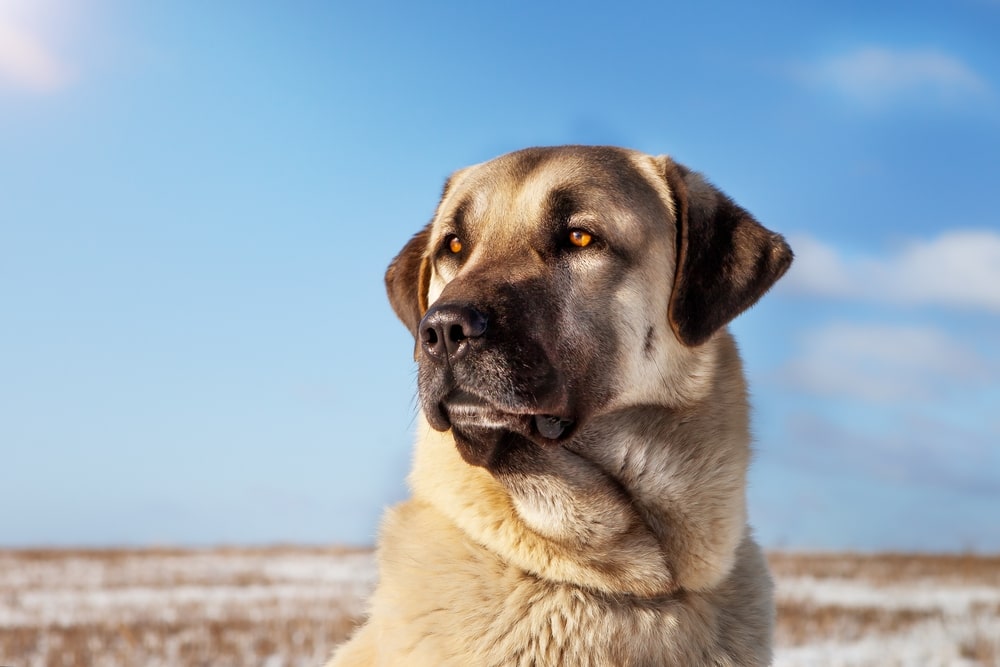
FAQ: How to Manage Large Livestock Guardian Dogs
1. What are livestock guardian dogs (LGDs)?
Livestock guardian dogs (LGDs) are breeds specifically bred to protect livestock from predators. Common LGD breeds include the Great Pyrenees, Anatolian Shepherd, Kangal, Turkish Kangal
and Maremma Sheepdog. They are known for their size, strength, and protective instincts.
2. What are the key characteristics of LGDs?
LGDs are typically large, strong, and independent. They have a natural instinct to protect livestock and are known for their loyalty and bravery. These dogs are usually calm and gentle with their flock but can be aggressive towards perceived threats.
3. How do I manage the health of my LGD?
Regular veterinary check-ups are crucial for maintaining the health of your LGD. Keep up with vaccinations, parasite control, and dental care. Monitor your dog for any signs of illness or injury and seek veterinary care promptly if needed.
4. How do I ensure the safety of my livestock with an LGD?
To ensure the safety of your livestock, provide proper training and socialization for your LGD. Supervise interactions between the dog and livestock, especially during the initial introduction period. Ensure your LGD has a secure area to patrol and protect.
5. What are the legal considerations for owning an LGD?
Check local laws and regulations regarding the ownership of LGDs. Some areas may have specific requirements for fencing, licensing, and containment. Ensure you comply with all legal requirements to avoid potential issues.
6. How do I handle aggression in my LGD?
If your LGD shows signs of aggression, address the issue promptly. Identify the cause of the aggression and work on desensitizing your dog to the trigger. Consult with a professional dog trainer or behaviorist if needed. Consistent training and socialization can help reduce aggressive behavior.
7. Can LGDs live indoors?
While LGDs are primarily outdoor dogs, they can live indoors if provided with enough exercise and mental stimulation. Ensure they have a comfortable space to rest and access to outdoor areas for exercise and patrol duties.
8. How do I introduce an LGD to new livestock?
Introduce your LGD to new livestock gradually and under controlled conditions. Allow them to observe the livestock from a distance before allowing direct interaction. Supervise all interactions until you are confident that the dog and livestock are comfortable with each other.
9. What are the grooming needs of LGDs?
LGDs have thick, double coats that require regular grooming to prevent matting and reduce shedding. Brush your dog at least once a week and more frequently during shedding seasons. Regularly check and clean their ears, trim their nails, and brush their teeth to maintain overall hygiene.
10. How do I prevent my LGD from roaming?
To prevent your LGD from roaming, provide a secure, fenced area for them to patrol. Ensure the fence is high enough and buried deep enough to prevent escape. Training your dog to respond to recall commands can also help keep them within the designated area.
Understanding the Responsibility of Owning a Kangal Dog
Kangal dogs are a powerful and protective breed with a rich history and impressive guarding abilities. While they are not inherently dangerous, their size, strength, and protective instincts require responsible ownership and proper management. By understanding their characteristics, behavior, and legal considerations, potential owners can ensure a safe and harmonious relationship with their Kangal dogs. For more information on dog bite laws, legal advice, and resources for dog owners and victims of dog attacks, visit DogBiteLaws.com.